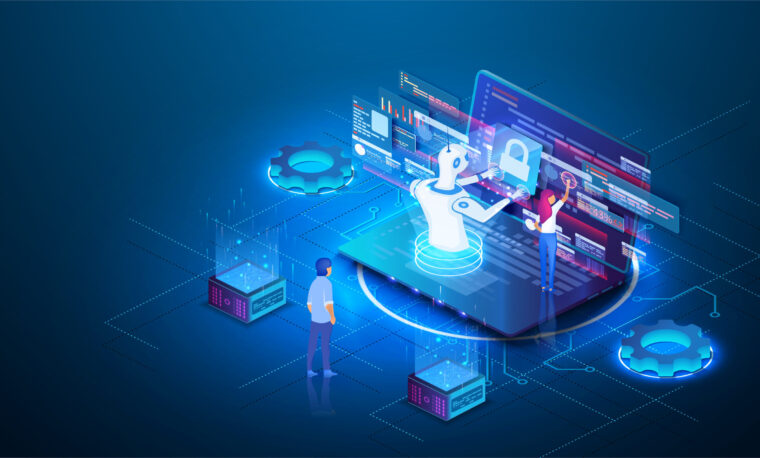Artificial Intelligence
2 August 2023

Artificial Intelligence (AI) is a revolutionary technology that has become an integral part of our modern lives. From virtual assistants and personalised recommendations to self-driving cars, AI is transforming various industries. However, for many, AI remains a mysterious and complex concept. In this blog, we will demystify AI by exploring its basics, shedding light on its fundamental principles, and understanding its real-world applications.
At its core, AI refers to the simulation of human intelligence in machines that can perform tasks that typically require human intelligence. It involves creating computer systems that can learn from experience, adapt to new situations, and perform tasks with a level of autonomy. AI encompasses various subfields, including machine learning, natural language processing, computer vision, and robotics, among others.
Machine Learning – The Heart of AI: Machine learning is a subset of AI that enables systems to learn and improve from experience without being explicitly programmed. It involves feeding large amounts of data into algorithms, which then learn patterns and make predictions or decisions based on that data. Supervised, unsupervised, and reinforcement learning are some common types of machine learning techniques.
Natural Language Processing (NLP): NLP allows machines to understand, interpret, and generate human language. Virtual assistants like Siri and Alexa rely heavily on NLP to comprehend user queries and respond appropriately. NLP is also used in sentiment analysis, language translation, and content summarisation.
Computer Vision: Computer vision empowers machines to interpret and understand visual information from the world. This technology is utilised in facial recognition systems, self-driving cars’ perception capabilities, and even in medical imaging for diagnosis.
Real-World Applications of AI: AI’s impact can be witnessed across diverse industries. In healthcare, AI assists in diagnosing diseases, personalising treatment plans, and even predicting outbreaks. In finance, AI algorithms optimise trading strategies, detect fraudulent transactions, and assess credit risk. Moreover, AI is revolutionising transportation through self-driving cars, and enhancing customer experience through chatbots and recommendation systems in e-commerce.
Understanding the Limitations of AI: While AI has made remarkable advancements, it still has its limitations. One major concern is AI bias, where algorithms may produce unfair or discriminatory results due to biassed training data. Ensuring ethical AI development and addressing bias are critical challenges that the AI community is actively working on.
Artificial Intelligence is a powerful and transformative technology that continues to reshape the world around us. By understanding the basics of AI, we can appreciate its potential and grasp the significance of its applications in our daily lives. From machine learning to natural language processing and computer vision, AI encompasses a wide array of tools and techniques that are continuously evolving. It is crucial to foster responsible and ethical AI development to harness its full potential for the benefit of humanity. As we continue to demystify AI, we embark on an exciting journey towards a future where intelligent machines and human ingenuity coexist in harmony.